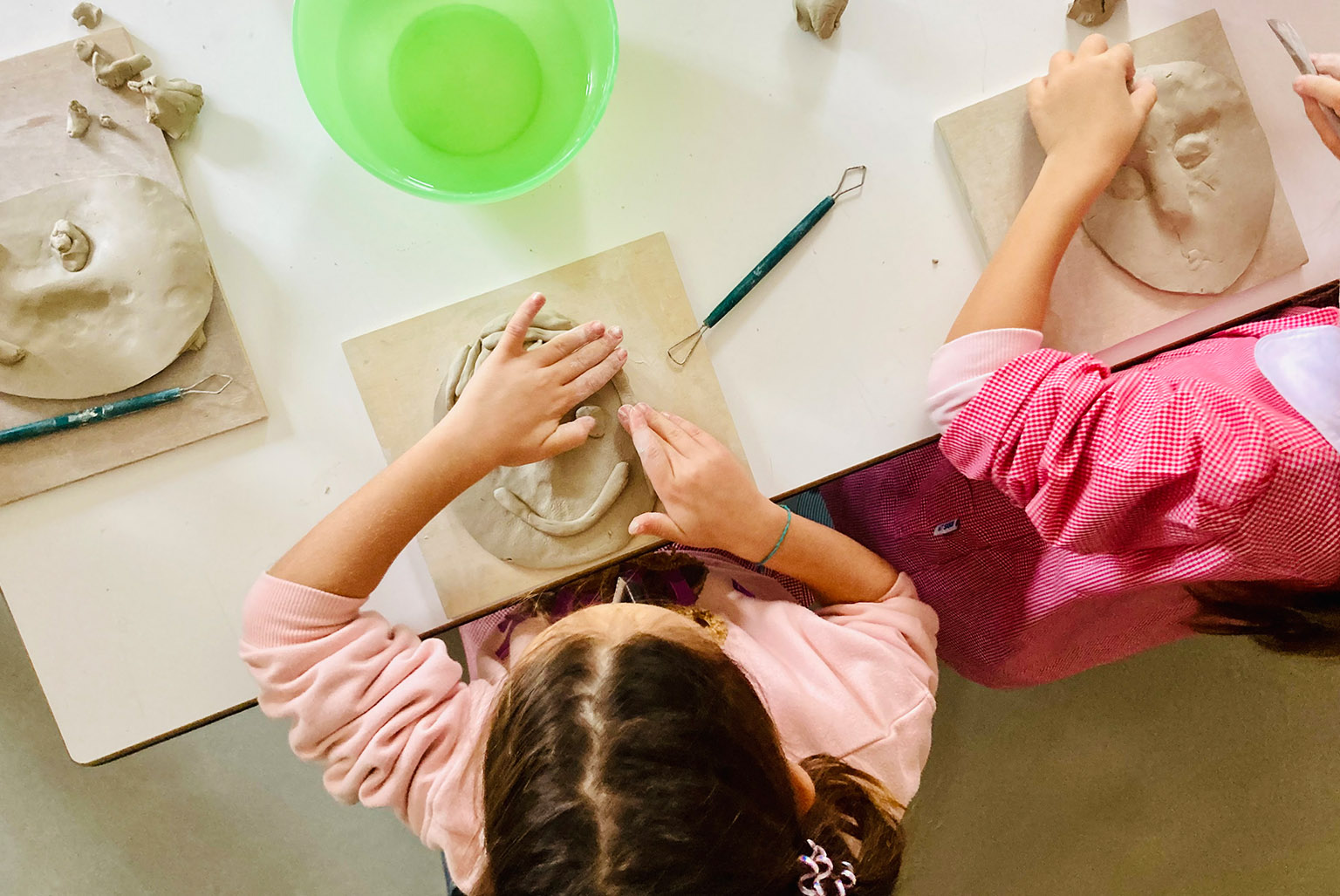There are three learning activities for primary schools. Each includes a visit to our galleries and a workshop activity. Information on costs and bookings can be found at the bottom of the page.
The rare objects factory
This activity begins with a guided tour of the Design collection.
We will encounter a series of objects that inhabit our homes and will ask ourselves questions such as: How is an object made? What is design? Who is the designer and what does a designer actually do?
Everything begins in the mind, from an idea that is transformed into a drawing and then … into an object. How does an individual object become a series and how does it come into our homes? In the workshop, the class will have an unfamiliar experience. They will use moulds to make objects out of plaster and liquid-clay, just like in a real potter’s workshop, in a simple kind of mass production.
All the products, similar but different, can be fired at no extra cost to complete the production cycle.
Our aims:
- make design accessible
- develop creative thinking
- enhance tactile perception and observation
- experiment with the use of liquid clay
Duration: 2 hours.
Tactile books
Our museum rooms are ideal places for listening to, looking at and touching special stories.
Caressing stories and sculptures, the class will discover what a tactile book is and how to make one.
They will also learn about the Braille code. In the workshop, each child will make a tactile book to take home.
A rich assortment of materials for cutting and pasting will be provided.
Our aims:
- make art accessible
- promote storytelling and listening abilities
- enhance the sense of touch
- encourage the expression of feelings and emotions through creative development of evocative personal productions
- transform images and materials in the search for original figurative solutions
Duration: 2 hours.
Video:
Ri-tratto con tatto (treat-again with touch/tact)
What is a portrait?
Contemplating some of the portraits in our collection, from Homer to Giorgio De Chirico’s “Colonial Mannequins”, the class will use their hands to explore faces, eyes, noses and mouths.
How they are made? What do they tell us?
We will try to guess their expressions and understand their emotions. Afterwards in the workshop, each child will model a clay portrait of their own face or someone else’s. They can be fired at no extra cost and collected later.
Our aims:
- make art accessible
- encourage wonder and the appreciation of beauty
- enhance tactile perception
- convey the language and grammar of the face
- teach clay modelling techniques
- encourage the expression of emotional states through modelling
Duration: 2 hours
Bookings and costs
Learning activities must be booked: contact us at 335 569 69 85 (mobile and Whatsapp) at least 15 days in advance.
We will help you choose the best laboratory for you and provide the relevant safety advice.
Cost: 80 euros per class group.
Terms of payment:
Postal transfer
Bank transfer
Debit or credit card.
Refunds will not be provided. In case of no show by the school, it will be possible to book another date. To cancel a reservation, just call us or send an email to prenotazioni@museoomero.it. If, due to unforeseen circumstances, the museum is unable to guarantee your chosen workshop, we will contact the school as soon as possible to arrange an alternative time.

